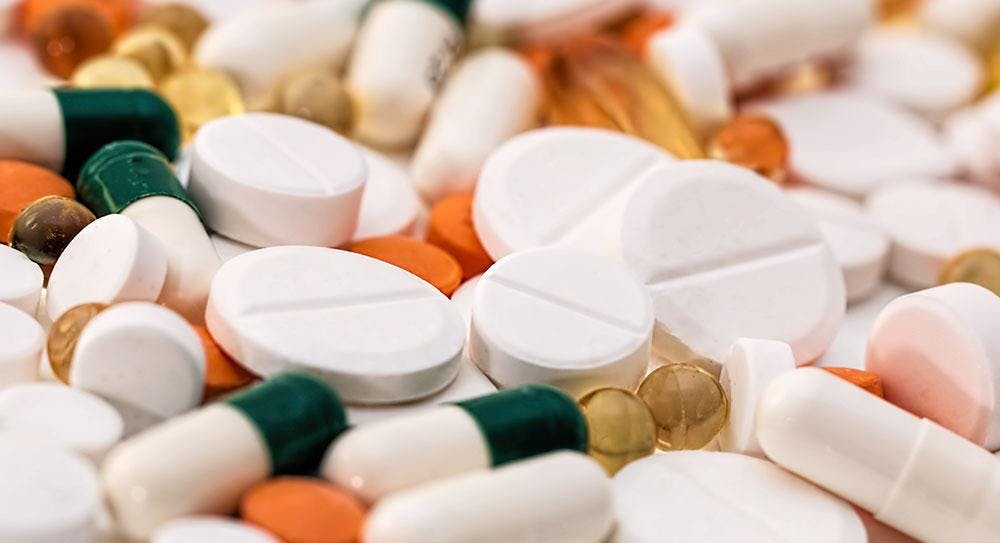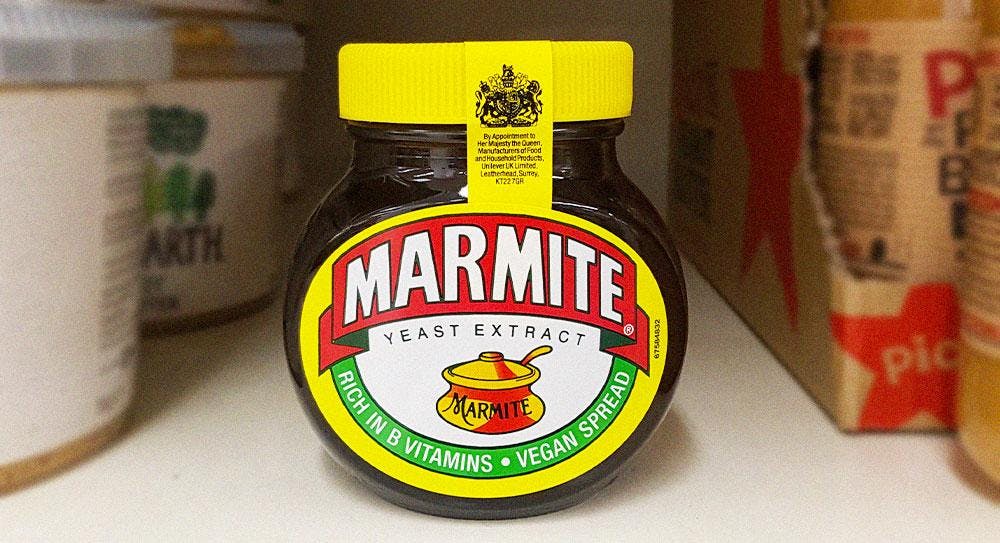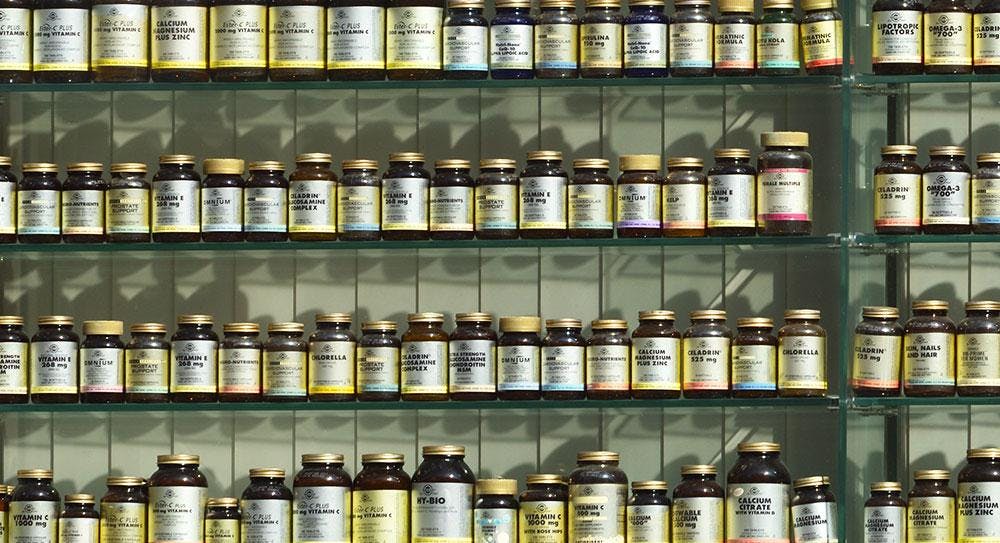Lifestyle
What We All Need to Know About Vitamin B12
8min read
Vitamin B12 is essential for our bodies to function properly; not getting enough can have devastating effects. The good news? It’s really easy to make sure you get all the B12 you need. Read on to find out more.
What is Vitamin B12?
B12, less commonly known as Cobalamin, is a water-soluble vitamin that functions as a coenzyme (meaning it helps enzymes to function properly). Coenzymes are broken down by our bodies and therefore must be constantly replenished.
It has two really important functions: maintaining the structure of nerve cells and helping red blood cells to multiply. It also works closely with folic acid to release energy from the food we eat and utilise iron properly. All pretty necessary.
Why is Vitamin B12 important?
Too little over an extended period of time can result in chronic tiredness, anaemia and ultimately nerve damage. There are also links between B12 deficiency and cardiovascular disease.
Symptoms of B12 deficiency include:
- Anaemia
- Fatigue
- Weakness
- Soreness of the mouth and tongue
- Constipation
- Decreased appetite
- Weight loss
- Numbness and tingling in the hands and feet
- Dizziness, light-headedness
- Poor memory and confusion
Given the possible side effects, it's important for vitamin B12 deficiency to be diagnosed and treated as soon as possible. The longer symptoms are left untreated, the higher the potential for permanent damage.

Are you at risk from B12 Deficiency?
Harvard University identified some key risk factors for vitamin B12 deficiency — and they are not all diet-based. That said, eating a totally vegan diet is absolutely a reason to be mindful of your B12 intake.
Ageing
As we get older, our bodies naturally begin to produce less of certain things. B12 absorption relies on an “Intrinsic Factor” that we produce ourselves. But production of this can slow down the older we get, meaning that we are not able to absorb enough B12.
Our stomachs can produce less acid as we age too, and this can also lead to a decrease in our ability to absorb and utilise vitamin B12.
Medical conditions
There are a number of medical conditions that can affect a person’s ability to absorb vitamin B12. If you suffer from any of the following it is worth being vigilant: Coeliac’s disease, Crohn’s disease, pancreas dysfunction. Stomach or bowel surgery may also affect your ability to absorb B12 from food.
Medication
Taking certain medication over a prolonged period of time can lead to issues with absorbing vitamin B12 too, regardless of age. One of the most common diabetes medications — Metformin — is one culprit of this, as are medications for indigestion or reflux as they work by preventing production of stomach acid, which is necessary for absorption of B12.
If you regularly take any of the following, getting a blood test to check your levels of Vitamin B12 is advisable:
- Esomeprazole (Nexium, Nexium Control, Emozul and Ventra)
- Omeprazole (Losec and Losec MUPS)
- Lansoprazole (Zoton FasTabs)
- Famotidine (Pepcid, Pepcid AC)
- Ranitidine (Zantac, Zantac 75 and Zantac 75 Relief)
Veganism
If you are vegan and do not a) ensure you eat adequate amounts of fortified foods, or b) don’t take a supplement, you are at risk of a vitamin B12 deficiency.
Sources of B12
Vitamin B12 is made by bacteria that live in the soil and in the digestive systems of animals (us included). We make it in our intestinal tract but too far down for it to be reabsorbed so most of it is excreted. Therefore, we must ensure we are getting enough in other ways.
Provided your body is capable of absorbing it efficiently, the daily recommended guideline for Vitamin B12 intake is between 1.5 and 2.4 micrograms.
Generally speaking, including animal products in your diet will mean you consume vitamin B12, but this is not the only option. If you are leaning towards a more plants or all plants diet, there are absolutely other ways to stay healthy.
The good news is that with a little planning you can easily ensure you meet those requirements by including the following fortified foods in your diet:
- 1 serving of Marmite a day provides you with 1.9 µg of Vitamin B12.
- 1 serving of Engevita Nutritional Yeast flakes provides 2.2 µg
- 100ml of Alpro’s Almond Milk contains 0.38 μg of Vitamin B12 and most other non-dairy yoghurts and milks are similar.
- Many breakfast cereals are also fortified and it is worth checking labels if you are so inclined.

These are very specific foods, though, and they may not be things you enjoy or wish to eat on a daily basis. In this case, we recommend taking a supplement, we love Vegetology’s water soluble 1-a-day tablets.
It is also worth noting that, while animal products are a source of vitamin B12, most modern-day farmed animals are not a natural source. Due to modern farming methods, which have depleted the soil of its normal nutrients, the vast majority of farmed animals (including those that are organic and grass-fed) also receive B12 supplementation through their feed.
Ensuring you get enough B12
For the average adult between 18 and 50, with no signs of deficiency, a simple multi-vitamin will provide you with the right amount of Vitamin B12. If you are thinking of moving towards a more plant-based diet, or have recently chosen veganism, this will be adequate too, since the body generally stores enough B12 for around 3 years.
If you have been vegan for more than three years, are over 50, or are recognising some symptoms of deficiency, a more aggressive plan of action may be required in the short term. It is best to get a blood test to find out.
If you are deficient you will often be given B12 injections every other day for two weeks (or until your symptoms subside). At this point the reason for your deficiency will be ascertained: if your levels of B12 have increased enough the reason will most likely be your diet, if not, it is more likely that your body is less able to absorb it in large enough amounts.
In the case of diet-related deficiency, once your levels have returned to normal you will be prescribed B12 supplements in tablet form or as a 6-monthly injection.
However, if your deficiency is not related to diet, you’ll usually need to have regular injections of hydroxocobalamin, which is much more readily absorbed.

Is “Vitamin B12” a reason not to eat a plant-based or vegan diet?
In short: absolutely not.
While getting vitamin B12 from your diet may take a tiny bit more effort, the majority of people can remove all the worry by taking a supplement.
The Association of UK Dietitians has affirmed that a well-planned vegan diet can “support healthy living in people of all ages” and if this includes taking a B12 supplement then so be it. At the end of the day, it’s your diet being supplemented or the diet of the animals you are eating.
Since there are no risks to your health, we don’t think that simply taking a supplement is reason enough to include animal products in your diet if you don’t want to.
By Munjeeta Sohal
MJ is a freelance writer, avid reader and habitual ruminator (and user of fancy words). She couldn’t live without books and her cats. On her days off, you can find her cycling up and down the Lea Valley, searching for a great vegan recipe to cook, or, well, reading her book with her cats.
Let us take care of dinner
We help to make eating more plants easy and delicious. Fancy letting us take care of dinner? Check out our delicious meals here.
Shop now
